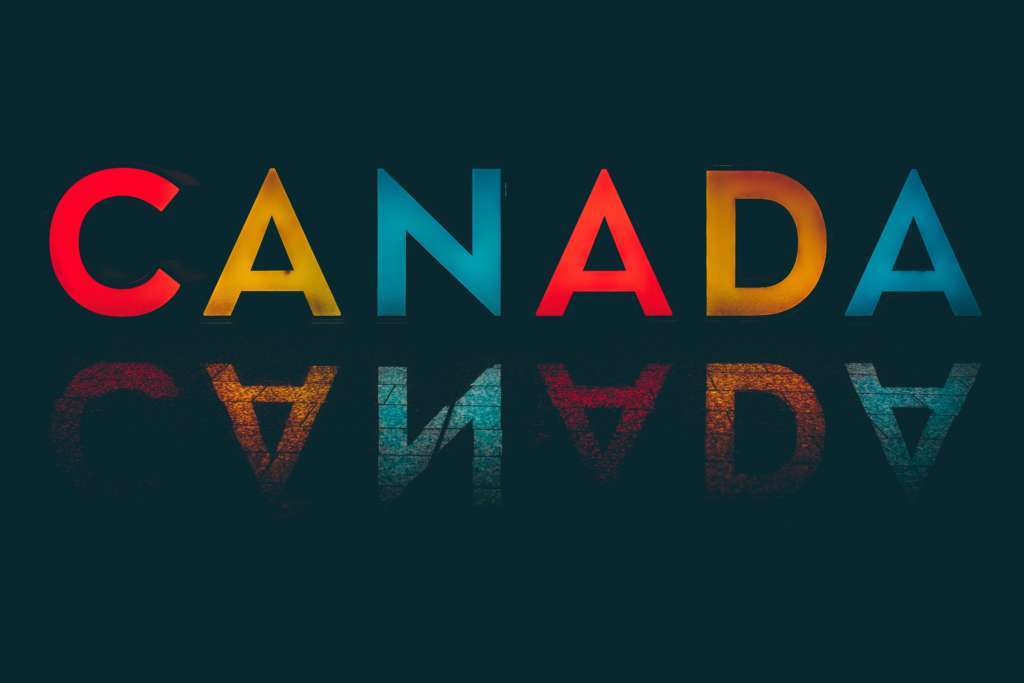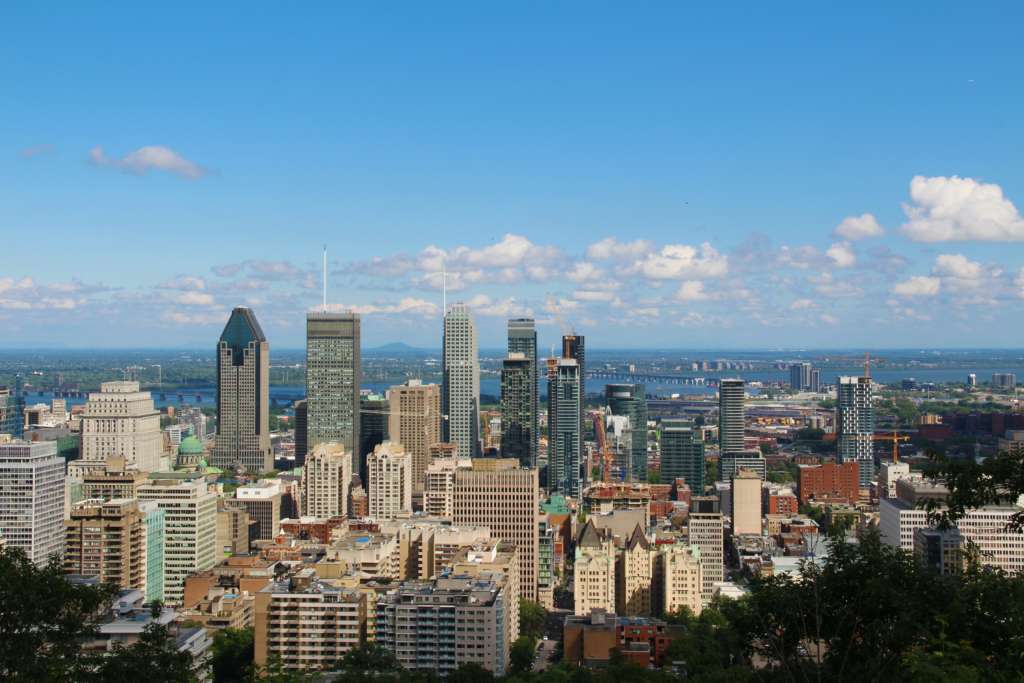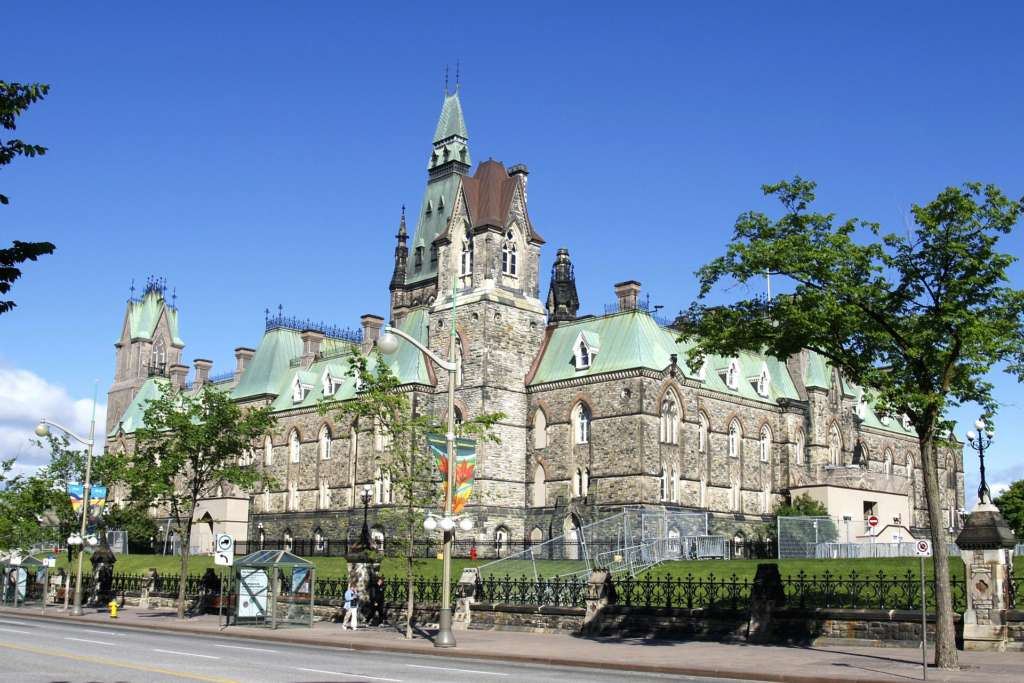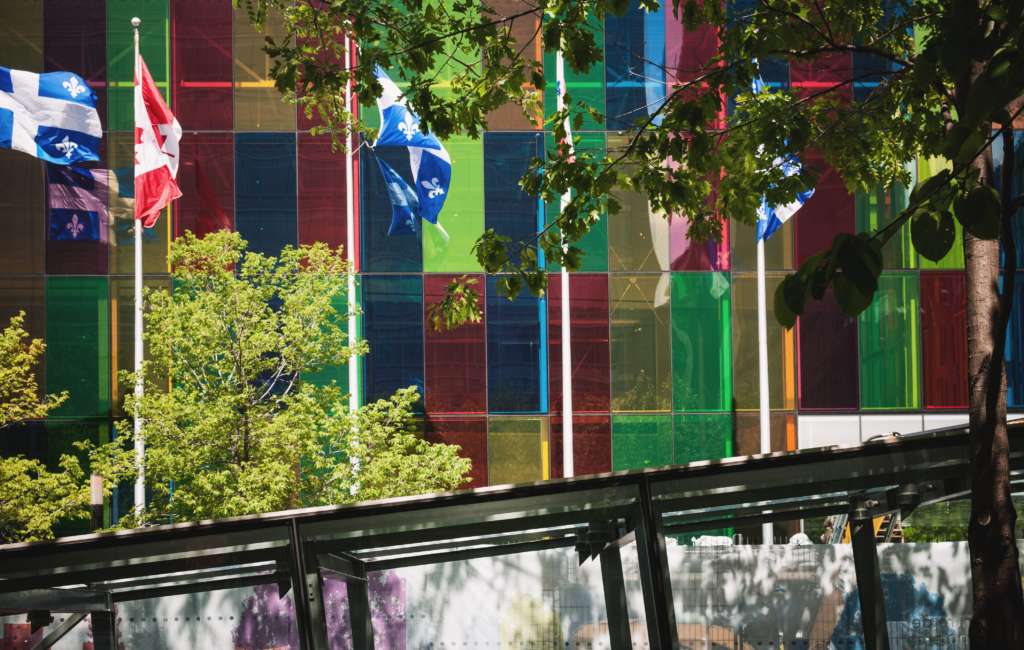Blog New

CAQ for studies: how to respond to an intention to refuse notice
The most common reasons for receiving a notice of intention to refuse
Contrary to a study permit application, the MIFI will not evaluate if a person will leave Quebec at the end of their studies. They will only evaluate if the person is registered at a designated learning institution, has sufficient funds, and if the person has respected the conditions of the previous CAQ (in case of a CAQ renewal application). For this reason, a notice of intention to refuse will usually be about the following reasons:- You have not been a full-time student
- You have insufficient funds to support yourself during your stay in Quebec
- You were not covered by health and hospitalization insurance
Full-time studies
One of the conditions of being a student in Quebec and having a CAQ is to study full-time for the level of study written on the CAQ. When applying to renew their CAQ, applicants must demonstrate that they were full-time students and have made progress in their studies during the period of validity of their CAQ. Applicants must provide their original transcripts and enrollment confirmation letter from their institution. In some circumstances, applicants who did not study full-time or have failed classes for a variety of reasons receive a notice of intention to refuse when renewing their CAQ. The notice can look like this:- Original copy of report cards or transcripts from the Québec educational institution you attended, or certified true copy by that institution, covering the entire period of your previous CAQ for studies:
- for the report card or transcript received does not cover the entire period of validity of the previous CAQ.
- for your report or transcript indicates that you were registered part-time during one or several semesters.
- for your report or transcript indicates that you failed many courses.
- Letter dated and signed by yourself explaining why there are many failed or abandoned courses in your marks transcripts or why you were not registered during one or more regular terms
- Document(s) proving your explanations as to why you did not make your studies your principal activity during the total period covered by your previous CAQ for studies
- You had to take a leave of absence for medical reasons (a note from your doctor will be required);
- You had a family emergency;
- You had to return to your home country for any reason and were not physically in Quebec;
- You postponed your program start date and arrived in Quebec later on;
- Etc.
Insufficient funds
In case of a CAQ renewal application or an initial application if you reside in certain countries such as the USA, France and Mexico, proof of sufficient funds are required to obtain a CAQ. If the proofs presented are insufficient, the MIFI issues a notice of intention to refuse that looks like this:- Recent proof of your financial capacity to take on the expenses related to your studies in Québec: paycheque statement(s), letter from current employer specifying the salary, income tax return notice, bank letter(s) showing current balance:
- for the documented financial resources are insufficient.
- Declaration of financial support signed by the person, other than yourself, who will cover the costs related to your stay in Québec
- Recent documents proving the financial capacity of the person, other than yourself, who will cover the costs related to your stay in Québec: a letter from an employer specifying the salary, paycheque statement(s), income tax return notice, bank letter(s) showing current balance, etc.
Minimum funds required
The MIFI requires that you demonstrate you have sufficient funds to cover the tuition fees of your program (and not just the first year), the living costs in Quebec, the insurance costs and the settlement fees. For example, if your tuition fees are 25 000$ and you are single, you would need to demonstrate a total of 39 349$ (25 000$ in tuition fees + 14 349$ in living costs). You should add to this number the cost of the insurance (unless it is already purchased and included in your application) and the settlement fees of 500$ (if it is an initial CAQ application). You can consult the MIFI’s website to determine the minimum living expenses. The numbers are updated annually and depend on your family composition. Although it is important to know the minimum requirements, the best practice is just to present as many proofs as possible.Acceptable proofs
Acceptable proofs for the application differ whether you are supporting yourself or if someone else is responsible for your expenses. If you are supporting yourself, you can present your bank statements or certificates, proof of tuition fees already paid, proof of bursaries, if any and proof of your part-time employment such as a work attestation, pay stubs and tax returns. The MIFI accepts proofs of your employment for the purpose of evaluating your funds available, although the condition to obtain a study permit is to have sufficient funds without having to work in Canada. If someone else is financing your studies, that person must sign a Declaration of financial support letter and present proofs such as bank statements, proofs of their income and other investments. You can also have more than one person supporting you. In that case, each person must sign a separate Declaration of financial support letter and provide their documents.Not being covered by health and hospitalization insurance
It is mandatory to be insured while being an international student in Quebec and failure to do so can lead to a refusal of your CAQ application. If you receive a notice of intention to refuse due to not being covered by health and hospitalization insurance during your studies in Quebec, you must provide a letter of explanation and proofs to justify the reasons why you were not insured. Circumstances differ and a letter of explanation can sometimes be sufficient to overcome a notice of intention to refuse. For example, if you were not insured for a month because you forgot to renew your insurance on time, but were insured the rest of the time and have adhered to all of the other conditions of your stay in Quebec, such as full-time study, it is probable that the officer will accept your explanation. While it is not guaranteed that your explanation will be accepted, it is mandatory to explain why you were not insured.Other possible reasons to be aware of
Some other reasons to receive a notice of intention to refuse are missing or incorrect signatures and outdated enrollment letters.Signature
- Form Declaration, commitments and authorizations duly signed and dated (This form is in your online file, within the PDF attached to the message of confirmation of payment):
- for you are a minor and the form received was not signed by one of your parents.
- for the signature of the form received does not match that of the passport or identity document provided from your parent.
- because the signature of the form received does not correspond to that of the passport or the document ID provided.
- for a photocopied, faxed or digitalized signature is not accepted.
Letter of admission or enrollment
- Letter of admission from the Registrar's Office (or the Admissions Office) of the educational institution that you will be attending:
- for the term's registration date mentioned in the letter received has passed.
- Official letter from the Registrar's Office of the educational institution that you are attending, establishing your status as a full-time or as a part-time student and the number of credits obtained or to be obtained, if applicable:
- for the letter received is not recent enough.
How to respond to a notice of intention to refuse
If you have received a notice of intention to refuse, read it carefully and see what is required from you. Pay special attention to parts of the letter that are bolded, highlighted or underlined. Agents often use the same template of letters and bold, highlight or underline the specific requirements. For instance, if your transcripts show that you have studied part-time for a semester and you have not provided an explanation for that, it is possible that the agent will indicate for which semester he or she needs an explanation in their notice. After reviewing the letter, review the documents you have provided for your application. You can download a copy of the documents you have provided from your Arrima account in case you haven’t kept a copy of them. Review the documents presented and see if you are able to understand the MIFI’s notice. It’s often quite obvious. For example, you see that you provided an online printout of your transcripts instead of the original ones, and you see that the notice of intention to refuse requires original transcripts. If you have not failed classes nor studied part-time, then you would just need to obtain original transcripts from your school and add them to your application. It is important to evaluate correctly which documents are required, especially if you didn’t study full-time. For example, if the MIFI asks you to provide explanations why you studied part-time during the Winter 2020 and Fall 2021 semesters, and you only provide explanations for the Fall 2021 semester. Even if you had perfectly reasonable reasons for the Winter 2020 semester, your application will be refused because you have not addressed that point. If you have received a notice of intention to refuse due to not having studied full-time, it is a good idea to consult with your school’s international students' department. Most universities and colleges in Quebec have an international students' department and they would be able to help you. After preparing your response, be careful to send all your additional documents at once on Arrima, as you won’t have a second opportunity to provide additional documents.Need help?
Studying in Quebec is a wonderful and fulfilling experience. However, difficulties can happen to anyone and it is important to address them correctly. If you need help with your CAQ application, don’t hesitate to contact me. I will be able to review your situation and help you succeed.
Québec Experience Program - Graduates stream
Québec Experience Program - Graduates stream requirements
In order to be eligible under the Québec Graduates streams of the Québec Experience Program, you must:- Have completed an eligible program of study in Québec (more details below);
- Have respected the conditions of your stay as a student in Québec;
- Have sufficient work experience following the completion of your studies in Québec (more details below);
- Have a valid work permit or work authorization (maintained status);
- Be working full-time in Québec at the time of the application;
- Be at least 18 years old;
- Intend to work and settle in Québec;
- Have sufficient knowledge of French (score at least B2 in the TEF or TCF, or having previously studied in French);
- Have sufficient knowledge of Québec’s values.
Eligible Programs of Study for Québec Experience Program - Graduates stream
It is important to know that not all programs are eligible under the Québec graduates stream. The eligible programs are:- Diploma of vocational studies (DVS) of at least 1,800 hours of study
- Diploma of vocational studies (DVS) followed by an Attestation of vocational specialization (AVS) of at least 1,800 hours of study
- Diploma of college studies, technical training (DCS)
- Bachelor’s degree
- Master’s degree
- Ph.D.
Diploma of vocational studies (DVS) for which an Attestation of vocational specialization (AVS) is available
In order for an AVS program to be combined with a DVS, the AVS program must be a continuing education leading to a given trade. For example, if you take a DVS in Secretarial studies, which is 1,485 hours, you can take an AVS in Legal Secretarial Studies, which is 450 hours, and the total will be 1,935 hours. Be mindful that not all DVS programs have a specialization. For example, the DVS in Dental assistance, which is 1,500 hours, don’t have any specialization. You can’t take an ASP in Legal Secretarial Studies for example to make up the missing hours.Attestation of college studies (ACS)
ACS diplomas are not eligible under the Québec graduates tream. If you have completed an ACS, you can still qualify under the Temporary Foreign Worker stream, in which case you will have to accumulate 2 years of full-time work experience, instead of the 1 year under the Québec Graduates stream. You can also evaluate your eligibility under the Québec Regular Skilled Worker program.Work Experience Requirements for Québec Experience Program - Graduates stream
If you have obtained one of the eligible diplomas, you still need to obtain sufficient work experience following the completion of your program. This factor is often the most overlooked by applicants and can lead to refusals. I will outline the work experience requirements below and some useful information. If you have completed a Diploma of college studies, technical training (DCS), a Bachelor’s degree, Master’s degree or Ph.D., you must obtain at least 12 months of work experience that meets all the following conditions:- Full-time (at least 30 hours per week)
- In a NOC level 0, A or B profession
- Full-time (at least 30 hours per week)
- In a NOC level 0, A, B or C profession
- If your position is of NOC level C, you must also occupy an occupation that is related to your studies in Québec
- Full-time work experience means that you must have worked at least 30 hours per week;
- You cannot average your hours. If you have worked 20 hours one week and 40 hours the week after, you have only acquired one week of full-time work experience;
- You can count discontinuous work experiences. If you have worked 4 months full-time, took a break of 2 months, and resumed work for 8 months, you will have accumulated 12 months of work experience;
- You can count the weeks. 1 year is equivalent to 52 weeks. If you have an irregular schedule or had frequent time off from work, you can count all the weeks where you have worked more than 30 hours per week;
- You should present your situation correctly. If you have taken 2 months off during a 1 year period and your employer omitted to mention it on your work attestation, you should not count this work experience in your application.
Knowledge of French
In order to qualify under the Québec Experience Program, you must demonstrate a high intermediary level of French. You can do so by:- Completing your program of study entirely in French
- Obtaining level B2 in speaking and listening in a recognized French test (TEFaQ, TCFQ, for example)
Québec values
Another point to note is that you must demonstrate knowledge of the Québec values. You can do so by either passing a values test after you submit your CSQ application (you will need to wait for an invitation). You can also assist to an Objectif Intégration session (which lasts 24 hours over a week), prior to submitting your application and you can include it with your application. If you have plenty of time before submitting your application, you can assist to the Objectif Intégration sessions. Otherwise, the Québec values test is fairly simple and there is no problem passing it after submitting your application.How to prepare and submit the application
Once you have verified you satisfy to all the program requirements, you can then prepare and submit your application.Assemble documents
The first step is to gather all the required documents required for an application under the Québec Experience Program - Graduates stream. You will need to present the following documents:- Completed and signed application form (A-0520-GF)
- Your passport (and those of your spouse and children, if any)
- Proof of studies (diploma and transcripts)
- Proof of work experience (work attestation letter and paychecks)
- Proof of status in Québec (all permits issued by the MIFI and IRCC)
- Proof of knowledge of French
- Marriage certificate, if applicable
- Birth certificate of your dependent children, if applicable
- Proof that you have assisted to the Objectif Intégration session, if applicable
- All other documents required in the official documents checklist
Submit the application on Arrima
After you have prepared all the documents, you can submit your application on Arrima and pay the fees there. Should the application be approved or if there are other documents required, you will receive a notification directly from your account.After you receive your CSQ
Receiving a CSQ doesn’t grant you permanent residency automatically and you’ll still have to send a permanent residence application to IRCC. IRCC will evaluate if you have any inadmissibility issues, such as criminality and medical inadmissibility. With a CSQ, you will also be able to extend your work permit in Canada. It is important to always extend your temporary status in Canada until you obtain permanent residency. You will be able to apply for either a closed work permit (LMIA exemption A75) or a bridging open work permit. If you have any questions regarding your application or if you need assistance in preparing it, don’t hesitate to contact me.
The process of studying in Canada: what you need to know
Process for studying in Canada
Applying to a school in Canada is a relatively easy process, but there are a few things you will need to do in order to make sure everything goes smoothly. The first step is to find a school that meets your needs and interests. Once you have found a school, you will need to gather the necessary documents and submit an admission application. After you have been accepted to a school and have obtained authorization to study in Canada, you will need to apply for a study permit. Once you have completed your studies, you may be eligible for post-graduation work permits or other immigration options.Obtaining Admission to Canadian College or University
Canada offers a wealth of opportunities to students from all over the world. In addition to having some of the best schools in the world, Canada is home to a variety of universities and colleges that offer a wide range of programs for their students. If you are planning on attending a post-secondary institution in Canada, then it is important to know if your school is a Designated Learning Institution. Designated learning institutions (DLI) are Canadian colleges and universities that have been designated by the Government of Canada to host international students. In general, Canadian universities provide high-quality education at comparable levels. This is due to the fact that in Canada, universities receive public funding to help them maintain a high level of education. Canada also has a large number of colleges that provide high-quality education. Colleges provide a great alternative to universities for students who are looking for a more flexible learning environment. Some colleges may also offer specialized programs and smaller class sizes which allow students to receive personalized attention and instruction. If you want help finding the right program for you, you can contact us.Obtaining Authorization to Come in Canada
Once you have chosen a school, you will need to obtain the proper authorizations to study in Canada. You will have to apply for a study permit, which a document issued by Canadian immigration authorities that allows foreign nationals to study at designated learning institutions (DLI) in Canada. The process of applying for a Canadian study permit varies from country to country, so make sure that you consult your local visa office instructions before starting the process. Once all the necessary documents have been gathered according to the specific instructions of your local office, there are certain application forms available on IRCC’s website which need to be filled out. When this is done, you can submit your application either online or at a Visa Application Centre (VAC). At the moment of submission, you will be required to pay the application processing fees of 150$ and biometric fees of 85$, if applicable. If you intend to study in Quebec, you will also need to obtain a Québec Acceptance Certificate (CAQ).Staying in Canada upon completion of studies
Once you have obtained a study permit, you will be authorized to live and study in Canada for the duration of your program. At the end of your studies, if you want to remain in Canada under a different immigration category (for example, as a skilled worker), then you may apply for a post-graduation work permit. In order to be eligible for the PGWP, you must fulfill a number of requirements, such as having studied in Canada as a full time student for at least 8 months, having completed your studies at an eligible institution and received your program completion letter and final transcripts and apply within 180 days of reception of completion letter or final transcripts or when study permit has expired, whichever comes first.Permanent residence options
There are a number of permanent residence options available to international students who have completed their studies in Canada. Your education in Canada may help you when it comes to qualifying for Canadian permanent residency. Many federal and provincial immigration programs value candidates with Canadian education and employment experience. Possible programs are the Canadian Experience Class, Provincial Nominee Programs, Quebec Skilled Worker program, and other programs such as the Atlantic Immigration Program and Rural and Northern Immigration Pilot. Check out our blog post on What you need to know before applying for permanent residency. If you are interested in learning more about the different permanent residence options available to you, please contact us.Conclusion
Studying in Canada can be an enriching and rewarding experience. Not only is the quality of education at Canadian universities highly respected worldwide, but students also have the opportunity to live in one of the most beautiful and diverse countries on earth. The process of applying to a school, obtaining authorization to study and eventually securing permanent residency can seem daunting at first, but with the right information and preparation it can be a smooth and easy process. If you want help finding the right program or need assistance with any part of the application process, please don't hesitate to contact us for a consultation.
What you need to know before applying for permanent residency or citizenship
Be eligible to apply
The very first thing you should do before applying for permanent residency or citizenship is to ensure that you are actually eligible. Each program has its own set of eligibility requirements.Permanent residence
Did you know that you can acquire permanent residency through employment, investment or family sponsorship? The following are the most common ways to become a permanent resident:- By being sponsored by a family member who is a Canadian citizen or permanent resident
- By being nominated by a province or territory
- Through the Federal Skilled Worker program
- Through the Canadian Experience Class
- Through the Atlantic Immigration Pilot Program
- Through the Quebec Skilled Worker Program
- As an entrepreneur or self-employed person
- As a refugee or protected person
Citizenship
There are different ways by which you can become a Canadian citizen:- By birth (if you were born in Canada)
- By descent (if one of your parents is a Canadian citizen)
- By naturalization
- Be a permanent resident of Canada
- Be physically present in Canada for at least 1,095 days in the five years immediately before the date of your application
- Have knowledge of English or French
- Pass a citizenship test
- Have filed income taxes, if required
Figure out what documents are required
Meeting the eligibility requirements is only half the battle – you still need to provide the correct documents with your application. To find out which documents are required, you can consult IRCC's official application package instructions, which are available online for free and are updated regularly. It's important that you download the most recent instructions, as the documents required may have changed since you last applied. You can find the application package instructions by going to IRCC's website and selecting the correct program.Submit the application package
After you've gathered all required documents, the next step is to submit your application. You can submit it online or by mail, depending on which program you are applying to. Make sure that your application is complete and accurate, or it will be returned to you.Wait for a decision
After your application is submitted, it will take some time for it to be processed. Some programs take longer than others. Generally, it takes about 6 months for a permanent residence application submitted through Express Entry, whereas PR applications submitted through the Quebec Skilled Worker Program can take up to 24 months. Citizenship applications can take up to 12 months. You should monitor your email closely during the process to see if there are any updates or requests for additional information. You should also update your application if your contact information changes or if there are any changes to your situation that may affect your application, such as a change in your marital status.In a nutshell
Each program has its own set of eligibility requirements that must be met before an application can be submitted. The bottom line is that you need to know what program best suits your situation in order for the entire process go as smoothly as possible. I hope this article was helpful in informing you of what you need to do before applying for permanent residency or citizenship. If you have any questions, don't hesitate to book an appointment with me. I'll be more than happy to help!
Changes to the invitation criteria under the Quebec Regular Skilled Worker Program (RSWP)
Quebec Regular Skilled Worker Program
The Quebec Regular Skilled Worker Program (RSWP) is a Quebec immigration program aimed at skilled workers who want to immigrate to Québec permanently to work. The program is different from the Quebec experience program, as it is a point based program. The program will allow a person to obtain a Certificat de Sélection du Québec, which allows to apply for Canadian permanent residency The RSWP evaluate an individual's factors such as:- Language skills
- Education
- Work experience
- Current occupation
- Previous stay in Quebec
- Work experience
- Proficiency in French
- Combination of proficiency in French and English
- Level of education
- Age
- Workforce diagnosis
- Field of training
- Québec diploma
- Professionnal experience in Québec
- Professionnal experience in the rest of Canada
- Valudated job offer
- Knowledge of French
- Level of education
- Québec diploma
How to prepare your Expression of Interest profile?
If you intend to apply under RSWP, must first complete an Expression of Interest profile on Arrima. The profile will contain personal information related to invitation criteria, such as education, language skills, work experience, etc. Arrima is an online platform useb by Quebec's ministry of immigration to offer immigration services. It is mainly used by individuals to send CSQ applications under the Regular Skilled Worker Program, the Québec Experience Program, Permanent immigration pilot programs and the International Student Program. If you or someone you know is interested in moving to Canada through Quebec's Regular Skilled Worker Program (RSWP), book an appointment with us today. Contact us at 1-514-632-9386, or by email at zhang@quebecvisa.ca and we will be glad to help you with your immigration process! For more updates on the Regular Skilled Worker Program (RSWP), follow our blog posts.
Post-graduation work permit application for international students
If you have completed post-secondary education in Canada, you may be considering staying in the country to obtain valuable work experience.
In order to do this, one will have to apply for a post-graduation work permit. But what exactly is this permit, how does it work, and is it difficult to get approved? Let’s take a look at everything you’ll need to know about the application and we can help.
What is a Post-Graduation Work Permit?
Also known as PGWP, this permit makes it possible for students who have successfully graduated from an eligible Canadian university or college to gain work experience directly after graduation. In some cases, successfully obtaining this permit and working in Canada for a specific amount of time can help certain immigrants gain permanent residence in Canada via the Canadian Experience Class in Express Entry. In Quebec, you can also be eligible for the PEQ.
Once a student has completed their students, they can apply for this permit. Canada is interested in retaining immigrants to improve their economy, so the process of applying for a work permit is fairly easy. However, it must be done properly and accurately.
Currently, the PGWP program makes it possible for graduates to gain an open work permit for up to three years and work for any Canadian employer in virtually any industry without a job offer at the time of application. Students can also only receive one PGWP in their lifetime.
PGWP Validity and Application
Graduates can use their PGWP to work part-time, full-time, and be self-employed. The permit itself can allow a graduate to work in Quebec for a minimum of eight months up to a maximum of three years. The length of the work permit is determined by Canada immigration officers and is usually based on the duration of the student’s studies in Canada. Typically, winter and summer breaks are included in the accumulated length of the post-graduation permit. Most of the time, officers will issue a full three-year post-graduation work permit to graduates who have completed a 2-year course in Canada.
Currently, a graduate has 180 days total to apply for a PGWP after obtaining a final transcript and letter from the eligible school they graduated from.
In most cases, the post-graduation work permit can be extended when the permit length could not be provided at the time of application because of the expiration of the applicant’s passport. This is the only scenario in which the PGWP could be extended.
If a student manages to complete their studies in less time than the normal length of a program (usually by taking on a significant amount of credit hours at once) the PGWP can be assessed on the length of the actual program.
PGWP Requirements for Eligibility
In order to be eligible for the PGWP, you will need to have the following:
- Completed education in Canada at an academic, vocational, or professional training program that is a minimum of eight months long (or 900 hours in case of a DEP or ASP in Quebec).
- Held full-time student status in Canada during each academic session of the program of study, with the exception of the final semester.
- A transcript and an official letter from the institution confirming that the graduate has met all of the requirements to complete their program.
- Graduate from a public post-secondary institution, such as a university, college, trade school, CEGEP, or a private post-secondary institution operating under the same rules and regulations as public institutions in Quebec. Eligible schools can be found at the Designated Learning Institution list. Warning: not all schools listed on the DLI are eligible for the PGWP.
PGWP Travel Information
It is possible for a PGWP holder to leave Canada and return, but there are some requirements to consider.
A PGWP holder will need a temporary resident visa, or TRV, if they are not citizen of a visa exempt country. If a TRV is needed, one will have to submit a separate TRV application. One will need this visa if they would like to travel outside of Canada and return to work, unless travelling exclusively to the USA by land and returning by land before the expiration of their work permit.
If one’s native country does not require its nationals to have a visa, one can use an electronic travel authorization or eTA. An eTA is issued with a PGWP and can be used to leave and re-enter Canada during the lifespan of the PGWP.
How we can help
We believe that international graduate students should be able to easily submit a post-graduation work permit application in Quebec, Canada if they choose. Unfortunately, it’s easy to make some mistakes in the paperwork, especially if the applicant in question is not used to Canadian legal terms or is not fluent in English or French. Trying to make it work in a foreign country without any family or support is not a simple task. Regardless, we don’t believe it should prevent graduates from submitting their PGWP application with ease.
Immigration, Refugees and Citizenship Canada can be strict when it comes to application accuracy. I am an immigration attorney and I have helped countless graduate students and graduates entering the workforce after their studies.
Let me help you extend your status in Canada and fill out your PGWP properly.
1. Book an appointment with me [put scheduling link https://quebecvisa.as.me/new-clients]
2. Bring with you your student records and other required documents to the appointment
3. Get a detailed plan for your extension application.
By working with our immigration law firm, you can be sure that you will meet with a top-tier lawyer and only I will handle your sensitive paperwork. All costs involved will be discussed upfront and honestly.
With our help, you will be able to feel sure about the extension of your status in Canada. You can focus on entering the Quebec workforce with your fresh degree instead of complicated immigration matters.
Book an appointment today! [put scheduling link https://quebecvisa.as.me/new-clients]

Quebec backtracks on changes proposed on the PEQ program

High Rejection Rates for Study Permit Applicantions

Justin Trudeau’s Election: The Potential Impact on Immigration Policies
On October 21st, the Liberal Party’s gained a minority victory in the Canadian federal election. As a result, we can expect Canada’s immigration system to be relatively solid-- as long as the confidence of Parliament is relatively maintained.
The Liberal Party has to rely on the support of another party to pass legislation to Parliament. This will require a significant amount of deliberation and bargaining. However, the immigration policy will likely not be a major issue between the Liberal Party and whichever party lends their support, as many of the parties in Parliament have similar sentiments on the issue.
So, what does a maintained and stable immigration policy mean for the future of Canada? There are a few potential impacts to consider.
Increased Settlement Funding
Both Conservatives and Liberals in power have seen pretty significant increases to federal settlement funding in the past couple of decades. Liberals will be reestablishing and continuing this policy during the first office term.
Federal settlements fund services that focus on integration, both economically and socially. As it stands, around $1.5 billion is currently the cap, but it will be further increased as the Liberal Party continues to expand immigration.
Fluctuations in Citizenship Applications
Canada can expect to see a dip in citizenship applications before a significant surge. Liberals have decided to waive citizenship costs of specific permanent residents. This means that Canada’s high rate of accepted citizenship applications is likely to increase significantly in the coming months.
Currently, an adult must pay a $530 fee in addition to a $100 citizenship fee in order to submit their application for citizenship. Because it is so costly to apply, we can expect applicants to wait until the Liberal Party officially passes legislation that puts the cost change into place. After that, it is expected that new citizenship will increase by around 40%. The party itself has set aside approximately $110,000,000 for the increase in applications for 2023 through 2024. This will be a nearly 40% increase from what was expected to be spent in order to put the policy in place, which was originally around $75,000,000.
The Municipal Nominee Program
Multiple economic class immigration pilot programs were set in place during the Liberals’ first term, the most interesting being the Atlantic Immigration Pilot or AIP. This program, according to the party, would be made permanent if it was possible to get an additional mandate.
Now everyone is looking at the Municipal Nominee Program or MNP, which the party established and ensured would help small Canadian towns and cities bring in more immigrant workforces. As it currently stands, we know very little about the MNP, and many Canadian citizens are listening in for more details. Small Canadian towns face issues with drawing in immigrants, so the new immigration pilot might be of some use.
The MNP policies will likely be based heavily on the Atlantic Immigration Pilot (AIP), meaning it will make it possible for employers in smaller Canadian cities to support immigration applications that could be beneficial to the town economy and workforce in the long run.
The major issue that many citizens have with this potential pilot program is not knowing how the Liberal Party would possibly distribute nearly 3,000 principal applicant spots all across a massive county with thirty-five different metropolitan areas and 118 census agglomerations. It seems too good to be true, and there is some concern that the Liberal Party will narrow the program’s eligibility. This could be done by making only small towns in British Columbia, Manitoba, Albert, Ontario, and Saskatchewan could see benefits from the program.
“Whether or not that population gets concentrated in large urban centers like Toronto is another question because, obviously, the economic impact will be more marginal,” Christina Clark-Kazak, a professor at the University of Ottawa’s social science department told Global News of the upcoming immigration flux. “In fact, many people feel like there is room for there to be increased immigration levels.”
For the next few months at least, it’ll be a simple waiting game.

The Top 5 Reasons to Study in Canada
Canada is known for its beautiful landscapes and vibrant, bustling cities. Consistently celebrated as one of the friendliest and most culturally diverse countries in the world, it also ranks third overall for quality of life.
International students from across the globe are attracted to Canada’s top academic programs and universities. Here are five reasons why more students than ever before are flocking to the Great White North to continue their education.
- Canada is home to top-ranked universities
- It celebrates diversity and inclusion
Canada is the second-largest country on the planet. It is home to some of the world’s biggest, most prosperous cities and a thriving, multicultural society. Its population of just over 36 million people includes over 250 ethnic groups and 6.5 million people who speak an immigrant language other than the native languages of English and French.
Human rights are of the utmost importance in Canada. Comprehensive national human rights laws offer protection against discrimination based on gender, race, disabilities, or sexual orientation. Each province also has its own human rights laws and codes of conduct to ensure equality and accessibility for everyone.
Canadians are often stereotyped for their friendliness and kindness, and it’s a perception that certainly holds true. Immigrants and international students are welcomed and celebrated as a vital component in Canada’s diverse culture.
- Its beautiful landscape has something for everyone
- It is one of the safest countries in the world
- Canada offers a wealth of job opportunities

How To Prepare For The First Meeting With An Attorney
- Take a deep breath
- Prepare
- Gather information
- Take notes, or ask to record.
- Speak up!

Post-Graduation Work Permit for Quebec graduates
A post-graduation work permit is an open work permit will allow graduates from eligible institutions to work anywhere in Canada and gain variable work experience. This work experience can help candidates qualify for permanent residency in Canada.
In this article, we're going to focus solely on international students who have completed a program in the province of Québec.
Contrary to the rest of Canada, international students graduating from a private postsecondary institution in Québec are eligible to apply for the post graduation work permit. Indeed, in Québec only, private post-secondary institutions operate under the same rules and regulations as public institutions for professional secondary or collegial studies. Whether it is a private institution or a public one, students who complete a professional secondary or collegial degree can get the post graduation work permit. More specifically, the eligible diplomas are: diploma of vocational studies (DVS), an attestation of vocational specialization (AVS), an attestation of collegial studies (AEC), or a diploma of College studies (DCS). In addition to these programs, students graduating from an university program are also eligible to the post graduation will permit.
Eligible applicants
In addition to have completed one of the programs outlined above, one must fulfill the following criteria to qualify for a post-graduation work permit:
- Have at least 18 years old at the time of application
- Have completed a program of study that was at least eight months long (part 900 hours)
- Have maintained full-time student status in Canada during each academic session, with the exception of the last academic session that can be completed part-time
- Apply for the work permit within six months from completing the program
- Within 180 days of the date of applying for the post-graduation work permit, have held a valid study permit or work address to study in Canada without the requirement to obtain a study permit under paragraph 188 (1) (a) and (b).
- you have previously been issued a post-graduation will permit
- receive the founding from global affairs Canada, participated in the Government of Canada awards program funded by global affairs Canada
- obtained the equal opportunity scholarship (Canada – Chile)
- participated in the Canada – China scholars' exchange program
- participated in the organization of American states fellowships program
- obtained the majority of the credits towards the completion of their program of study by distance learning
- or have completed a program of study delivered by a non-Canadian institution located in Canada, regardless of their length of stay in Canada.
Lengths of the post-graduation work permit that can issued for Québec graduates
If your program of study is at least eight months long and less than two years, the length of the work permit will coincide with the length of your program. For example, if you have completed an attestation of college studies and your institution has confirmed that your program was 14 months of duration, you should receive a post-graduation will permit 14 months.
If you have completed a program that is two years or longer, the length of the work permit will be three years.If you obtain a diploma of vocational studies or an attestation of vocational specialization, Immigration Canada officers may use a prorated calculation in order to determine the length of the work permit. For example, students who complete a program of 1800 hrs. are eligible to receive a three-year work permit, even if they completed the program in less than two years. On the contrary, students who complete a program of 1500 hrs., even though the total duration of the program was more than two years, immigration officers can issue the work permit for less than two years.
Completion of more than one program

Top 5 mistakes you should avoid when applying for a Canadian Study permit
If you want to study in Canada, securing the study permit is key. In order to maximize your chances of getting the study permit, here are the 5 top common mistakes to avoid in your study permit application.
Providing only the documents listed in the checklist
Immigration, Refugees and Citizenship Canada (IRCC) provides a general checklist for study permit applications. However, each visa centre has different additional document requirements depending on your country of residence. You must consult the specific documents checklist from the Canadian Visa Office application when preparing your study permit.
Failing to provide a letter of motivation
One of the top reasons IRCC refuses an application is because they are not satisfied that you are a bona fide student, meaning that your main purpose, by coming to Canada, is to complete your studies.
A good letter of motivation addresses your overall educational goals, how the completion of your studies in Canada will enhance your employment opportunities in your country of residence, your ties to your country, such as family members and ownership of properties, etc.
A good letter of motivation is key in obtaining the study permit approval.
Failure to provide proofs financial capacity
Studies in Canada can be costly and IRCC agents are well aware of that. When they analyse your application, they want to make sure that you will be able to pay your tuition fees and living costs in Canada. Even when you or your relatives have enough funds to support your studies, it is important to submit the documents in the required format. We suggest that you include not only the proofs that you have enough funds for the first year of studies, but also proof that the future years will also be paid. This can include proofs of employment and tax statements showing future potential income. It is also a good idea to include bank statements for the past 3 months. For some countries, IRCC request bank statements for a longer period of time so be careful to check the country specific checklists (see point 1).
Choice of program of study
Considering that IRCC verifies if you are a genuine student, the choice of the program of study is an important decision in securing the success of your application. You must choose a program of study that makes sense when your previous studies and employment history.
Planning the application
Lastly, when preparing your future studies in Canada, it is a good idea to prepare your case well in advance. We suggest that you submit your study permit application at least 3 months before the planned start of your courses. It means that you should have all the documents ready for submission 3 months before the start date of your program so IRCC have enough time to process your application on time. For some countries, it can take even longer so you should consult the current processing times on the IRCC website before getting an admission and submitting your study permit application. Other delays such as biometric tests and passport submission upon visa approval can also make the process longer.
Do the study permit application the right way the first time
Despite avoiding the top 5 mistakes listed earlier, you are not guaranteed to receive the approval for your application. Every situation is unique and it is important that you prepare your application accordingly. Whether you contact us or another immigration attorney, it is important that you consult with an immigration expert soon to maximize your chances in obtaining your Canadian study permit.
Need more advice?
For more information about study permit applications, book a phone call or Skype consultation with me.
I am serious about keeping these 3 promises to my clients:
Your file will be handled personally by me and not someone else (such another lawyer or paralegal)
I will always be accessible to answer your phone calls and emails
You pay the legal fees only once your application has been sent to IRCC

